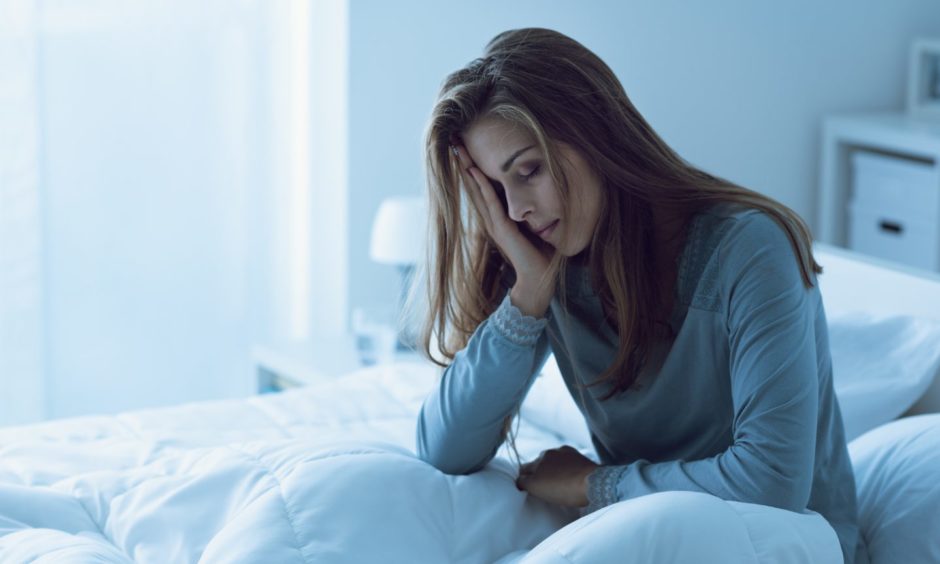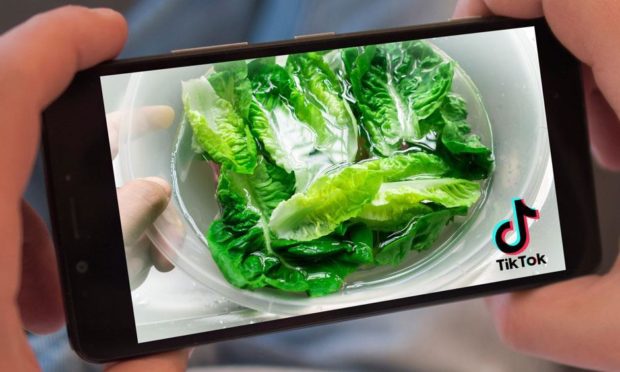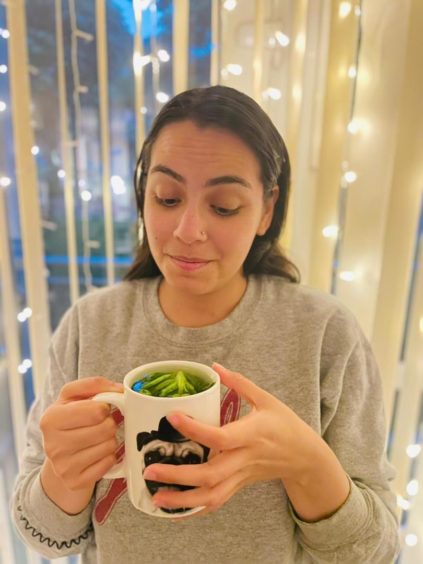One of the latest, and strangest, viral trends suggests steeping lettuce leaves in a mug of hot water could be key to sleeping through the night – but can lettuce tea really help you sleep?
People desperate for a good night’s kip have flocked to a video about lettuce tea on social network TikTok, which has gathered millions of likes.
In it, Shapla Hoque tells viewers struggling to sleep to “try this,” then pours hot water into a mug stuffed with lettuce.
After 10 minutes of steeping, she removes the leaves, drinks the water and heads to bed.
In an update, Shapla said it took her about 30 minutes to fall asleep.
WARNING: Video contains some strong language
@shapla_11 if you can’t sleep, try this #lettucewater #insomnia #lifehacks #fyp
♬ Monkeys Spinning Monkeys – Kevin MacLeod & Kevin The Monkey
Since then, videos with the lettuce water hashtag have been viewed more than 30 million times – with many others trying it out and giving their testimonials.
So, is lettuce water legitimate? Will this hot drink stop you from tossing and turning at night and let you slip off into dreamland?
Does lettuce help you sleep?
As a resident health and wellbeing journalist – and despairing insomniac – I wanted to give this viral “life hack” a try.
I can’t remember the last time I had a decent night’s rest or managed to sleep straight through until the next morning – not since I was a kid.
And if I were to hear the words “sleep” and “hygiene” together in the same sentence again, I was going to scream.
I don’t think I have a particularly bad bedtime routine. My phone automatically goes on night mode by 9.30pm, which discourages me from using it, and I’m in bed by 10pm on the dot to get a minimum of eight hours of sleep.
So, I was going to give this lettuce water trick a go and see if it could get the Sandman to add me back to his nightly route.
Lettuce tea ‘worked’
Giving my romaine lettuce a good wash, and picking out my biggest mug, I poured in the hot water and waited 15 minutes before picking out the leaves.
It worked.
Or, at least, I think it did.
I tried it two more nights in a row. I drank the mug of hot water, with a faint aftertaste of warm salad, and in about 20 minutes I would be fast asleep.
On top of struggling with getting to sleep, and staying asleep, I am also a notoriously light sleeper.
On one of these nights throughout my experiment, my boyfriend crept up by my bedside – certain he’d woken me up after being noisy – and had to check if I was still breathing because I was sleeping so deeply.
Confused, but pleasantly surprised, I went online searching for some scientific reasoning that this mug of hot, salad water had worked for me.
Was this all just a placebo effect?
Lettuce tea: What’s the science?
Lettuce contains something called lactucarium – a milky fluid that can make you sleepy.
But experts have suggested it’s unlikely four or five leaves would be enough to give you the desired effect.
Michelle Drerup, director of the behavioural sleep medicine program at the Cleveland Clinic Sleep Disorders Center, said it was a harmless attempt, but there is not enough evidence behind it.

In fact, while this trend has been circulating, a 2017 Korean study in mice has been cited as part of the videos.
It showed lettuce is an “interesting and cheap” source of sleep-inducing ingredients.
But many fail to mention the catch behind the study – that the mice were only able to nap so well because the lettuce extracts were tested alongside a sleep-inducing drug.
It appears it is perhaps the good old placebo effect helping everyone get to bed – albeit with a strange taste in your mouth.
So it might be worth trying in your quest to leaf no stone unturned for a quiet night’s rest.

